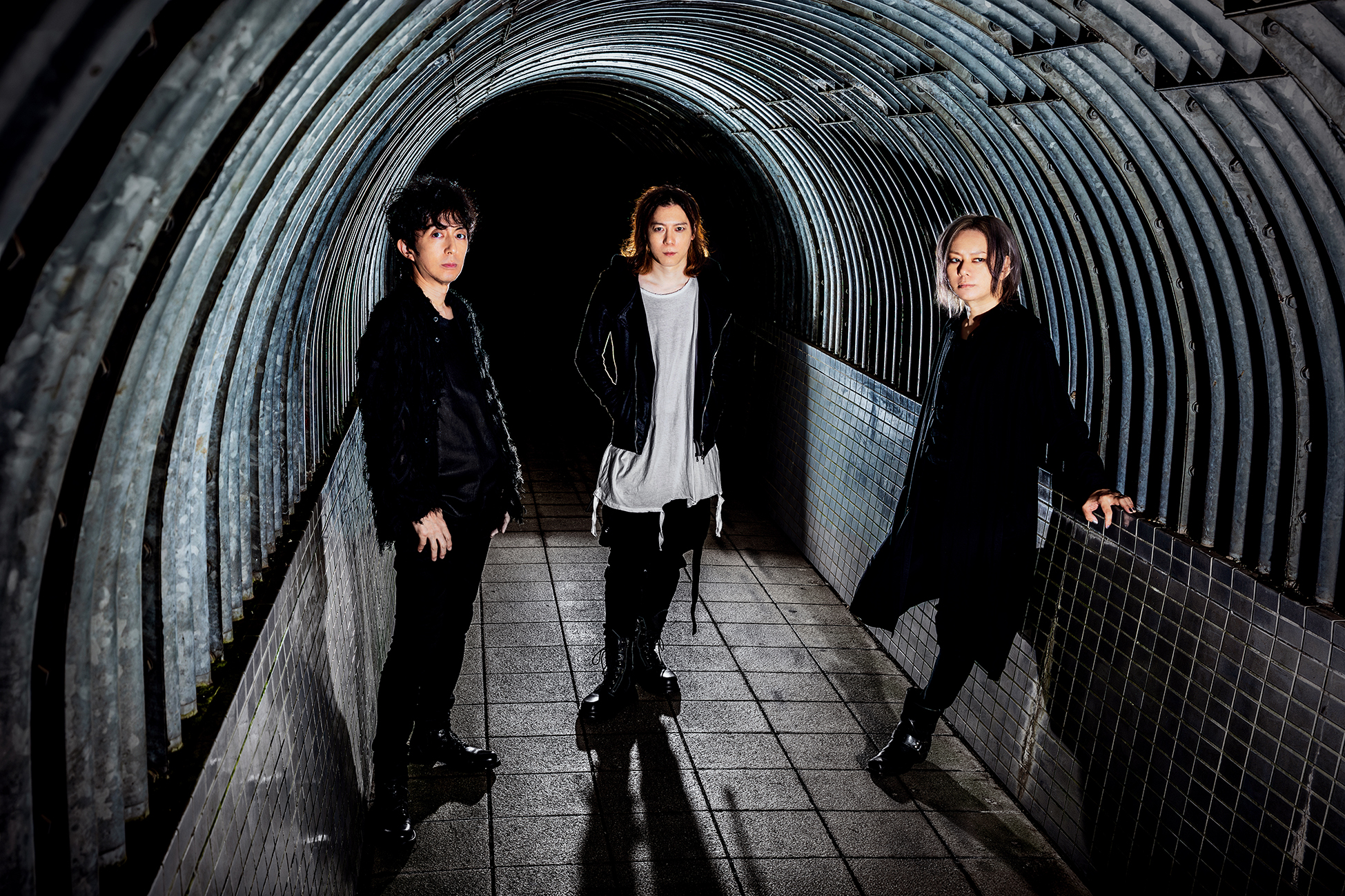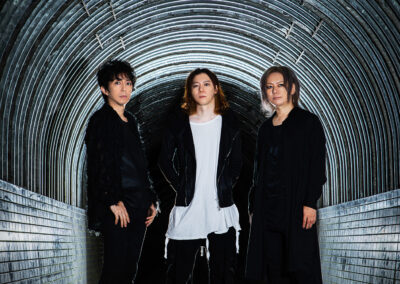NUL. is back with an avalanche of heaviness with their latest album, AVA––reaffirming their unwavering commitment to delivering top-tier industrial rock. In our interview, the trio opened up about their growth, their creativity and the diverse influences that have shaped AVA.
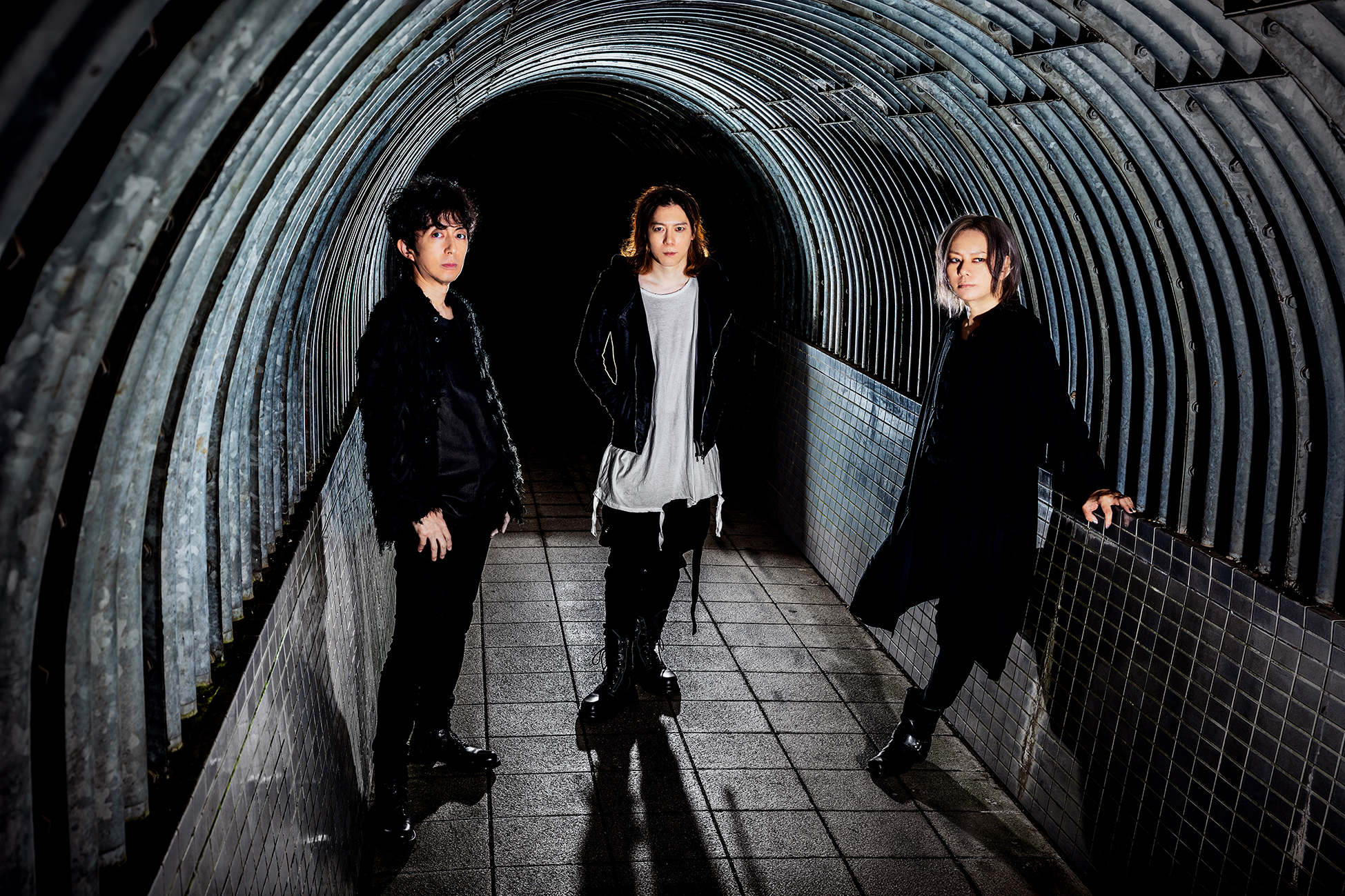
NUL. is a collaboration of three talented musicians: vocalist HIZUMI (ex-D’ESPAIRSRAY), guitarist MASATO (defspiral), and composer, programmer and producer Toshiyuki Kishi (abingdon boys school and more). They first made waves with their debut album, TRIBRID ARCHIVE, in 2021, laying the foundation of their unique digital-industrial rock sound. In 2022, they released EVILA, their second album, which went beyond their debut in both depth and impact, establishing them as a force in the genre with their incredible sound. Their latest release, AVA, came out on October 25th, 2024, reaffirming NUL.’s commitment to offer an “avalanche of heavy sound”. AVA once again highlights their dedication to delivering top-tier industrial rock. In our interview, the three members of NUL. offered an insightful look into their creative process, their evolving dynamics and the varied influences that have shaped AVA. They shared their approach to music and how they’ve grown since their last album. VMJ wrapped it up with a lighthearted game that brought out their playful side.
——Congratulations on the release of your third album.
The first album laid the foundation. The second album deepened that foundation even further. What does this third album mean to you all?
Toshiyuki Kishi: Looking forward? Well, for the three of us, our original concept was to explore a unique fusion of digital and industrial rock. That was our guiding idea behind the first two albums—we wanted to push boundaries and experiment with how these two styles could merge in fresh, unexpected ways. But when it came time to start working on this third album, we realized we needed a shift. We wanted to take a step back from that technical complexity and get back to something that felt rawer and more straightforward. For this album, we set aside the original concept temporarily and decided to focus on creating something simpler and more visceral —something intense, cool, and easy for people to get into, something powerful that the audience could instantly feel and move along with. So, with this album, we aimed to create a world where people could just let loose, feel the energy, and experience that intensity together with us. This album ended up being exactly what we envisioned.
——So, your musical approach has changed?
HIZUMI: This time, we really focused on creating a distinct “band sound”, which was very important to us. When we I say “band sound,” I mean the overall vibe and energy that we create together as a band. This includes the specific sounds we choose, how we play them, and the way we interact with each other musically. It’s about finding that unique combination that makes our music feel cohesive and engaging. For this album, we brought in Hiroki from the band D as a support member. We specifically wrote several songs with him in mind, which made a big difference. His drumming laid a solid foundation for the music, allowing us to arrange the songs in a way that really enhances the live experience. We wanted to make sure the songs were energetic and lively, so they could connect with our audience during performances. With Hiroki’s contributions, we were able to craft arrangements that not only highlight the band’s sound but also get the crowd moving and feeling the music. Having Hiroki on board has really helped shape the energy of this album.
——What growth have you experienced between the second and third albums?
HIZUMI: Have we grown (everybody bursts into laughter)? That’s a the real question (laughs)!
Toshiyuki Kishi: When we made the first album, we approached it with raw energy and a desire to make an impact. It was an intense, almost instinctive process, but along the way, we realized there were areas we could refine and improve upon. It taught us a lot about our strengths and the gaps we wanted to address. With the second album, we shifted gears and focused deeply on what we truly wanted to express—defining the direction of our sound and honing in on our creative goals. That project was a turning point for us. It gave us a sense of creative satisfaction that not only built our confidence but also opened up a sense of freedom to experiment and trust our instincts. By the time we got to the third album, creating demos became more intuitive. We weren’t overthinking or second-guessing ourselves. Instead, we let things flow naturally, writing what felt right in the moment. I think that’s where you can see our growth the most—embracing that balance of preparation and spontaneity, and really letting the music take shape organically.
——I see.
The album title AVA is brief but its simplicity is packed with layers of meaning. The three letters symbolize the three band members and the significance of this being their third album. But what lies behind AVA itself?
HIZUMI: Yes, exactly. The concept driving this album is aggression and destruction. We’ve always associated the triangle with the essence of the band’s image. There’s something raw and intense about that shape—sharp, balanced, and almost menacing in its symmetry. We wanted this album to capture that aggressive, uncontainable energy, something that feels unstoppable and powerful. The inspiration initially came from the word avalanche, with its sense of a force that’s overwhelming, almost impossible to resist. The word evoked the image of a massive, destructive power, like an avalanche coming down a mountain, unstoppable and devastating. We adapted it into AVA to keep it concise but visually striking. The title’s symmetry reflects the band’s unified vision and the inter-connectedness of our sound. It’s a three-letter symbol that holds everything together, channeling the essence of who we are now. The initials seemed to resonate perfectly, so we took them and called it AVA—a compact, intense name which exactly what this album is.
——Mountains are also in the shape of a triangle.
I thought AVA sounded like a divine name while I thought Evila had the opposite kind of resonance.
Toshiyuki Kishi: The name Ava for this album actually comes from the word avalanche. At first, we considered avalanche as a title because it captured that overwhelming force and intensity we were going for. But the more I thought about it, the more it felt a bit too direct—like it leaned too much into imagery of disasters or chaos. I wanted something with more depth and subtlety, something that could represent more than just external destruction. While exploring ideas, I got hooked on the concept of three letters and the shape of a triangle—it just felt clean and balanced. That led me to words like AVA and avant-garde, which fit perfectly with the themes we were working with. The symmetry and simplicity of AVA felt right, and it gave the title this mysterious, timeless quality. What’s funny is that the name really clicked after we finished the title track. When I listened to it, Ava was the first word that popped into my head. It wasn’t planned or forced—it just felt like the right match for the song and the overall vibe of the album. Even though Ava is a French word, I loved how it carried meanings tied to collapse, destruction, and transformation. It gave the album a sense of balance between intensity and elegance, which felt like the perfect reflection of what we were trying to create.
——You are right.
The album AVA has fewer tracks than the previous two. Is there a reason for that?
HIZUMI: Ah, that’s a bit of a sensitive topic (laughs).
Toshiyuki Kishi: It’s not that there’s anything wrong with it—it just came down to a different approach this time. For the first two albums, we were really focused on playing live shows. To build a solid live set, we needed a lot of songs, so we ended up creating a ton of tracks. But this time around, we felt like we already had enough songs to cover our live performances. When we started thinking about the flow of a full album, we realized that around ten tracks felt just right. It offered the kind of balance we were looking for—enough to make an impact without overloading it. So that’s how we landed on ten tracks for this album.
——When deciding on the number of tracks and the order for an album, what do you base your choices on?
HIZUMI: For me, it all starts with the beginning and the end. I spend a lot of time thinking about how the album will feel when you finish listening and then return to the start. I pay special attention to the connection between the last track and the first. When you listen to an album, each song leads into the next, and once the final track ends, it loops back to the beginning if it’s a CD. That feeling of something beginning again feels incredibly satisfying, and I wanted that sense of continuity for this album, from the first song to the last. It’s something I prioritize every time. The opening track has to make a strong impact, and I also care deeply about how the album ends—whether it finishes smoothly, leaving the listener with a sense of completion. I think of the album as a story, and the flow should feel natural and beautiful, like a narrative that ties everything together seamlessly.
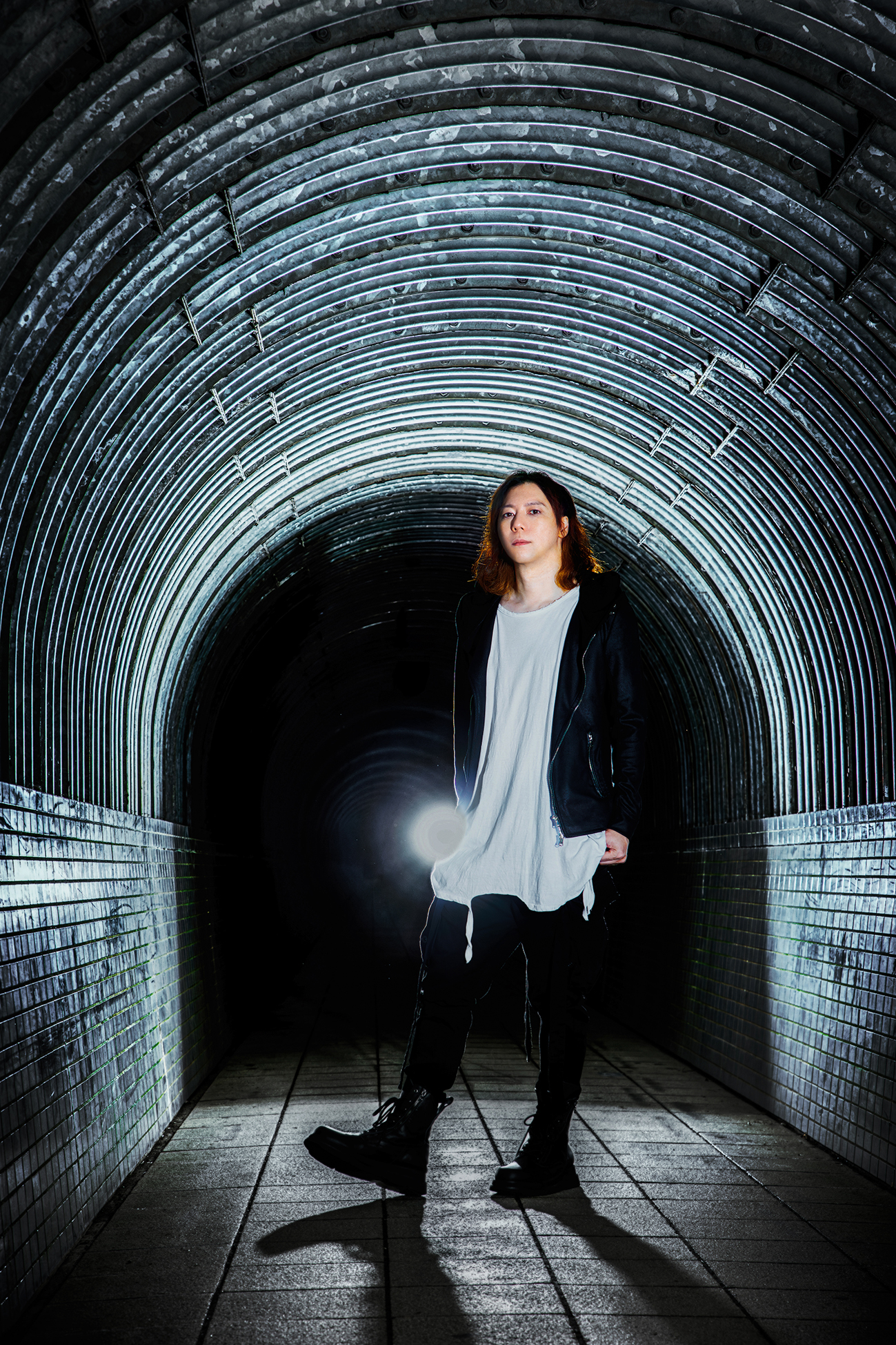
——Could you introduce your favorite song from the album?
HIZUMI: Well, funny enough, my favorite song from the album is Ihou Kaihouku. When we were creating it, I wasn’t too sure—it was a tough song to work on. But now, I’ve come to really enjoy it. There’s something about it that feels kind of playful, in a good way.
MASATO: To me, CRUMBLE is the song that stands out the most. It’s like we’ve completely broken away from the old image of NUL, and it truly feels like a band now. This track made a huge impact on me, and to have it as the first song on the album gives it so much weight.
Toshiyuki Kishi: Honestly, CRUMBLE holds a lot of significance. Here’s why: when we were working on the album, I started by roughing out about four tracks, unsure of which direction to take. I bounced between the first track, then tinkered with the second and third, and would keep returning to the first. That’s when I realized CRUMBLE was the one that really stood out. Even though it wasn’t initially meant to be the opening track, it grabbed my attention right away. I had a feeling from the start that it was going to define the album. When all the elements—drums, bass, guitar, vocals—came together, it felt like the whole NUL. world opened up. It’s definitely one of my favorites.
——What song was the most difficult to make?
HIZUMI: The lyrics themselves weren’t the hardest part, though they were difficult to write, but the genre of Ihou Kaihouku was something I hadn’t really worked with before. The challenge came from navigating that unfamiliar sound. I spent a lot of time figuring out how to approach the music and what direction to take with the lyrics. It was definitely a tough one for sure.
MASATO: For me too, Ihou Kaihouku was a real challenge. The demo had so many intricate guitar parts already laid out, and they were so well-constructed and unique. I struggled with how to inject my own style into something that was already so defined. It took a lot of work to find my place within those pre-existing phrases, but in the end, I was able to preserve the essence of the original while adding my own touch—even though I had doubts about it all the way through.
Toshiyuki Kishi: I didn’t find it too hard overall, but Hybrid Beast gave me a bit of trouble. It was actually the first track I wrote for the album, and I kept questioning whether it fit the vibe we were going for. I had written it in a very straightforward way, and it felt a bit simple compared to the more complex sounds of our previous albums. I wasn’t sure if it was the right direction, so I kept asking the band members for their thoughts and also tested it live to see how it felt. Eventually, it became one of the strongest songs in our live shows, and I’m really glad with how it turned out.
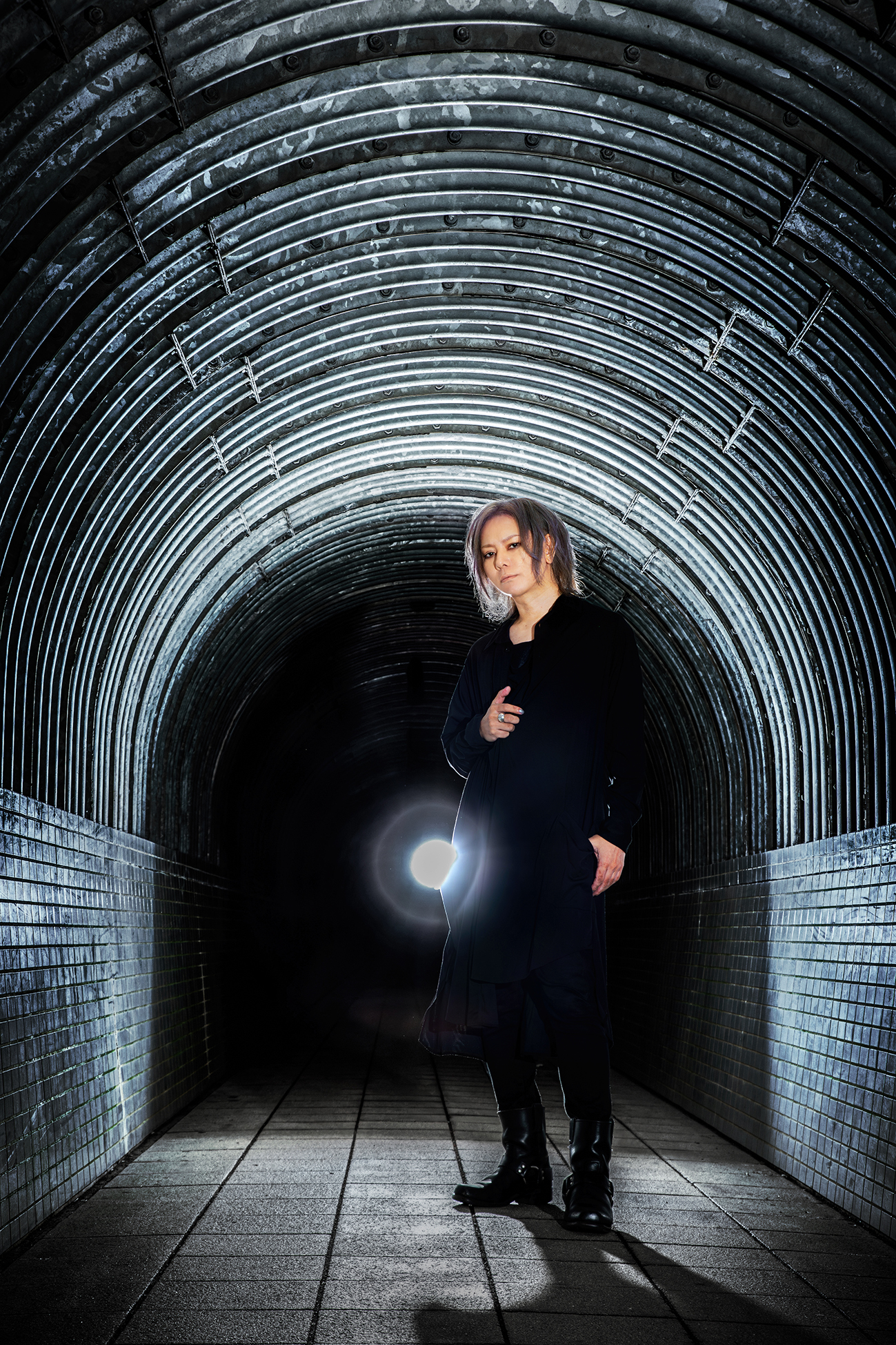
——How did the band dynamics change after finishing the album?
Do you have any unforgettable moments or episodes that left an impact on you?
HIZUMI: For Ihou Kaihouku, there was a time when I found the lyrics incredibly difficult to write. It was a rare experience for me to struggle with finding a theme. I was caught in a moment of uncertainty, asking myself: “What am I supposed to say here?” It was the first time I found myself reaching out to others for advice on the direction of the song. There was a point when I wasn’t sure if the concept I had in mind would even work. I had never before asked for feedback on such a deep level, but this time I felt the need to. After a few days of wrestling with it, the words finally started to come together. That’s when everything suddenly clicked, like going from zero to a hundred in a flash. And in that moment, when it all fell into place, I thought to myself: “This is something special.” It was a beautiful revelation.
——I found it particularly interesting because it’s the only track in your repertoire with an explicit content mark. The contrast between the bright, pop-driven chorus and the darker, more intense side of humanity in the lyrics really stands out.
HIZUMI: It’s an interesting contrast, isn’t it? As I mentioned earlier, this genre of music was something I hadn’t worked with much before. It’s pop, yes, but there’s also an intensity to it, and a larger concept behind the song. I really struggled with what to write for it, especially since the ending hadn’t been decided yet. I kept questioning how to bring it all together. Eventually, I had the idea to completely flip everything I had been thinking. That’s when the lyrics started to come together. I wrote things I hadn’t even considered before. It was surprising, but when it all clicked, it made sense. It felt like something I had only fully realized in that moment.
——If Ihou Kaihouku doesn’t fully represent you, which track would you say most directly expresses your own thoughts?
HIZUMI: For me, it’s the last track, THE LAST DAY.
——You added a playful touch with the use of cute emojis in the lyrics of Ihou Kaihouku.
Toshiyuki Kishi: Yeah, right (laughs). When I wrote that song, I wanted to capture a sense of chaos, inspired by Picasso’s work. What I love about Picasso’s take on chaos is that it wasn’t just dark or heavy—there were also playful, almost lighthearted elements in his portrayal. That mix of intensity and playfulness was the vibe I had in mind when writing the lyrics. If I had leaned too much into the playful side, the song could have ended up feeling too bright or even a bit strange. So instead, I focused on capturing the chaotic world I was imagining, with all its contradictions. That’s how the song came together—it’s not just about the chaos, but also about finding a balance between the different elements that make up that world.
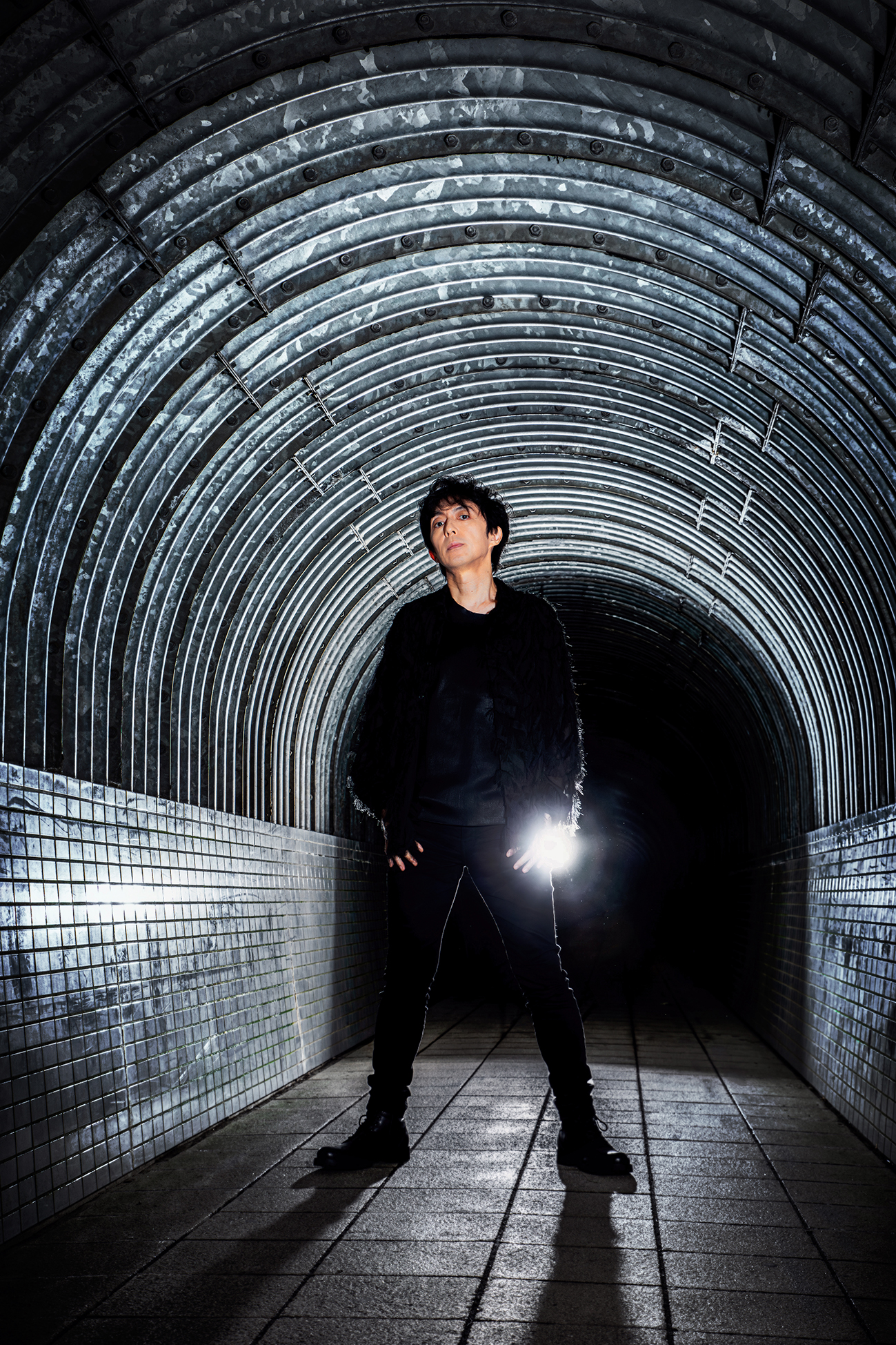
——It’s interesting.
You mentioned Picasso—outside of music, are there any art pieces, videos, places that have influenced the writing of AVA?
Toshiyuki Kishi: Yes, I am definitely influenced by art in general. I’ve always been drawn to painting, and I enjoy films as well. For example, in GRAVITY the reference to space reflects a sense of the vast universe, which came from my interest in those kinds of themes. I also imagined large-scale landscapes or images when creating. I’ve spent a lot of time in art museums, believe it or not. I think I’ve often pictured large paintings while working on the album.
HIZUMI: Now that I think about it, yes, there were influences like that. For GRAVITY I had certain imagery in mind, but there wasn’t a single specific thing I looked at when creating it. The imagery was more like a worldview inspired by the works of director Shunji Iwai. It’s that kind of feeling—very expansive and emotional.
MASATO: For this album and the tour, we were actually working on the album while touring. The album title itself became a source of inspiration. The visuals we created for the album artwork had this flowing, ink-like quality to them—chaotic and intricate. I think that swirling, mixed-up image is something that influenced me while creating.
——What do you think is the most important thing when conveying music or words?
HIZUMI: For me, it’s all about authenticity. I only write what I truly feel. If I start writing something fictional, it might be okay for a moment, but as soon as I sing it, it feels dishonest. I can’t do that. My lyrics come from my heart, from what I genuinely believe in. I try to write songs that I can continue singing, even as I grow older. I want my words to stay true to who I am, now and in the future. I don’t want to look back and think, “I should have stopped writing that back then.” I want my lyrics to stand the test of time, with no regrets.
Toshiyuki Kishi: For me, it’s about passion and truth. When I’m in the studio, it’s not just about making a sound—it’s about creating something that resonates with my heart. The most important thing is being genuine. It’s about connecting with my emotions and translating them into the music. Passion is what drives everything for me—whether it’s in the writing or in the production. If the energy behind the music is real, it will translate to the listeners.
MASATO: I completely agree. When I hear the first take of a song, and I think: “This sounds really good,” I trust that the audience will feel the same way. It’s that initial spark, that raw energy, that I try to capture. If you put your heart into it, that energy will come through, and the audience will feel it. It’s not about overthinking; it’s about letting the music speak for itself, with passion and conviction.
——To wrap up the interview, let’s play a game! We have three cups, and inside each one is a shape. Whoever picks the triangle has to answer the question. These questions are inspired by the lyrics of our new album!
HIZUMI: Oh, this sounds exciting! I’ve been waiting for your game the whole time (laughs). Let’s do it!
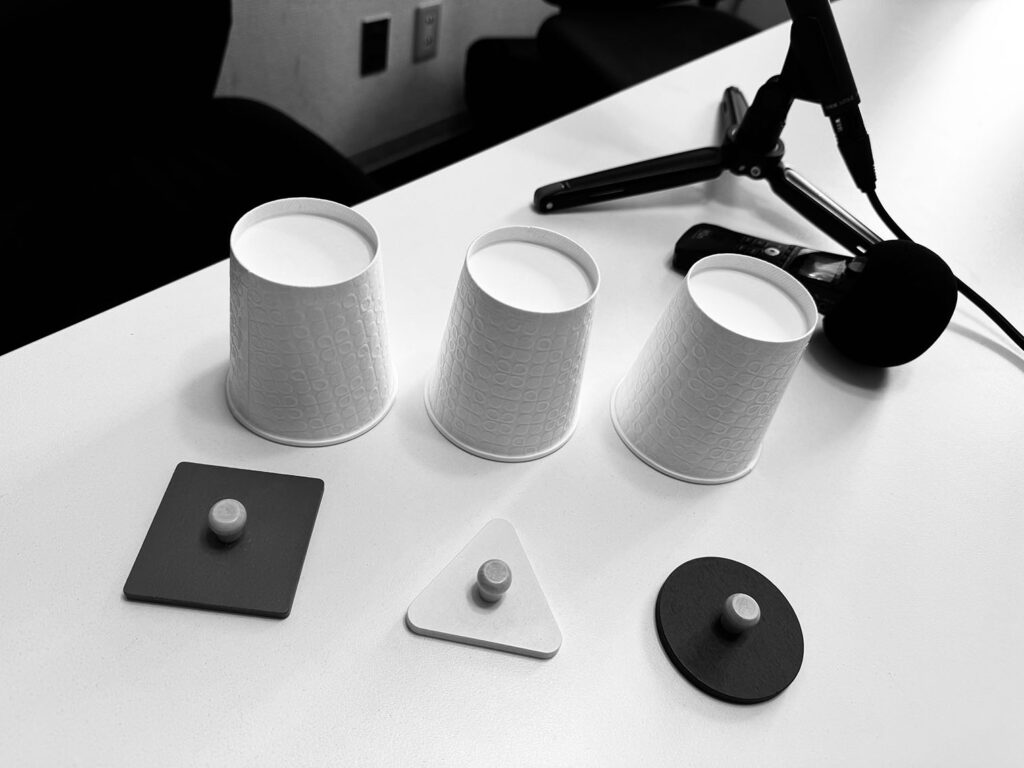
——Alright, pick a cup and lift it (HIZUMI has the triangle).
HIZUMI, this question was influenced by track 1 CRUMBLE:
What drives you insane?
HIZUMI: Hmm, this isn’t really related to the lyrics themselves, but more like regular life stuff. OK, OK, I see… What drives me insane? I guess hobbies! Hobbies can totally mess up your sense of money, right? You get so into them that you start spending way too much. Like, I love Gundam. I get all hyped up and end up throwing money at it. And then I think, “What the hell am I doing?” It’s like my brain is broken.
——OK, next round! Pick a cup and lift it (HIZUMI has the triangle).
HIZUMI, you’re on fire today. Question was influenced by track 3 GOD ALONE KNOWS:
What’s one thing that only God knows about you?
HIZUMI: Oh, something that only the Gods know? A secret? Uh, can I even say it? What can I say? Maybe, a bad habit… something I don’t really talk about and if I do, my image is gonna be ruined! OK, I know! I don’t even notice it, but I catch myself doing this weird thing… raises his eyebrows repeatedly.
Toshiyuki Kishi: Wait, how is Mandah going to write that down?
HIZUMI: Yeah (laughs)! If I had to explain it, it’s probably raising my eyebrows like a maniac.
——Alright, next! Choose a cup, lift it (MASATO has the triangle).
MASATO, the question was influenced by INFERNAL:
Are you the type to worry about the future, or do you just enjoy the present and forget about what’s coming?
MASATO: Ah, both! It’s a mix. Sometimes I’m all about enjoying the moment, but then when I start thinking about the future… Yeah, I worry. I want to enjoy the present, but when you get serious about life, you can’t help but think about the future and get anxious about it. But deep down, I want to be the type to enjoy the present fully… That’s the goal!
HIZUMI: Yeah, it’s all about living in the moment because it’s only what really matters.
——True, true. Alright, last round! Choose a cup and lift it (Kishi has the triangle).
Kishi, this question was influenced by track 10 THE LAST DAY:
What melody would you want to hear at the very last moment of your life?
Toshiyuki Kishi: Oh, I’ve got this one for sure. The last song I’d want to hear is definitely THE LAST DAY by NUL. (Everyone bursts into laughter). But seriously, if I had to pick a song to play on the piano as my final track, it would be Seijo no Merry Christmas by Ryuichi Sakamoto, from the movie Merry Christmas Mr. Lawrence. That piano version, the theme song — it’s incredibly moving and deeply personal for me. The reason I’d choose that? My roots in music go way back to YMO (Yellow Magic Orchestra), and Ryuichi Sakamoto has had a monumental influence on who I am as a musician. When I think about the music that shaped me, that track stands out as the one that’s closest to my heart. It connects me to my past, my journey, and everything that made me who I am today. It’s a way for me to say goodbye in a way that feels true to who I am — connected to my origins, my influences, and the very essence of my musical identity. So, that’s why I’d pick it. It’s like the perfect way to close the chapter.
——And, these are beautiful words to finish the interview.
Thank you all!
__________________
Mandah FRÉNOT
(c) VMJ

